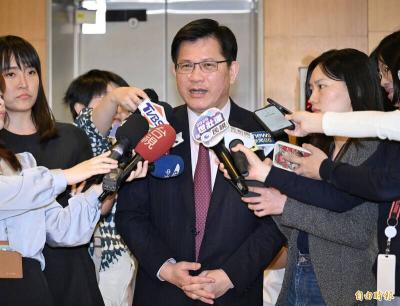There are many options to choose from to help boost Taiwan’s ailing economy, but an economic cooperation framework agreement (ECFA) the administration seeks to sign with Beijing is the worst of them all, an economist said yesterday.
Taiwan Thinktank chairman Chen Po-chih (陳博志) said Premier Wu Den-yih (吳敦義) asked government agencies to carefully study the possibility of raising the housing tax by a small amount, but was determined to push through an economic pact destined to change the course of the country’s development for decades with minimum discretion.
The Ministry of Economic Affairs says that the proposed agreement will boost GDP by nearly 1.7 percent and create more than 250,000 jobs. Chen, however, questioned the accuracy of the numbers, saying the methodology and models of the study were problematic.
Describing the trade pact as “sugar-coated poison,” Chen said that an ECFA would increase Taiwan’s economic reliance on China. He urged the public, including unification supporters, to oppose the planned pact, which he said would weaken the force propelling China to democratize.
The administration must reach out to the public and the opposition to seek consensus on this controversial issue, he said, preferably by holding a referendum.
He also called on the administration to seek trade agreements with other countries or refuse to let an ECFA take effect unless the trade pacts with other countries are signed.
Chen said he was not a troublemaker, but he wanted the administration to admit to its mistake. If he turned out to be wrong, Chen said, he would like to know why and how. If the administration is wrong, it needed to admit it, he said.
He made the remarks when promoting his new book, ECFA — The Unspeakable Secret, in Taipei yesterday morning.
Chen said the government had overestimated the benefits of an ECFA and underestimated its drawbacks. An ECFA is an interim trade pact for a free-trade agreement according to WTO rules, Chen said. After the proposed pact is signed, Chen said, more than 90 percent of Taiwan’s exports to China would enjoy zero tariffs and vice versa.
“The administration does not dare tell us of the negative impacts on local businesses and is turning a deaf ear on their doubts,” he said. “They are unwilling to clearly explain what it is because it is a secret they cannot afford to tell.”
Likening the signing of an ECFA with China to fishing, Chen said China’s blocking of other countries signing trade deals with Taiwan was like a fisherman driving fish from all sides so they had only one place to go.
Chen said there were many alternatives available, but the way the administration is demonstrating its interest in signing an ECFA with China by a certain time is like a man at a store declaring that he needs to buy a TV by 11am, leaving himself little room to negotiate. What was worse, Chen said, the man did not have a back-up plan.
“One of the back-up plans is not to buy it,” he said.
ADDITIONAL REPORTING BY VINCENT Y. CHAO
Also See: Panel, financial services not included in ECFA talks

Taiwan would welcome the return of Honduras as a diplomatic ally if its next president decides to make such a move, Minister of Foreign Affairs Lin Chia-lung (林佳龍) said yesterday. “Of course, we would welcome Honduras if they want to restore diplomatic ties with Taiwan after their elections,” Lin said at a meeting of the legislature’s Foreign Affairs and National Defense Committee, when asked to comment on statements made by two of the three Honduran presidential candidates during the presidential campaign in the Central American country. Taiwan is paying close attention to the region as a whole in the wake of a

Chinese Nationalist Party (KMT) Chairman Eric Chu (朱立倫), spokeswoman Yang Chih-yu (楊智伃) and Legislator Hsieh Lung-chieh (謝龍介) would be summoned by police for questioning for leading an illegal assembly on Thursday evening last week, Minister of the Interior Liu Shyh-fang (劉世芳) said today. The three KMT officials led an assembly outside the Taipei City Prosecutors’ Office, a restricted area where public assembly is not allowed, protesting the questioning of several KMT staff and searches of KMT headquarters and offices in a recall petition forgery case. Chu, Yang and Hsieh are all suspected of contravening the Assembly and Parade Act (集會遊行法) by holding

President William Lai (賴清德) has appointed former vice president Chen Chien-jen (陳建仁) to attend the late Pope Francis’ funeral at the Vatican City on Saturday on his behalf, the Ministry of Foreign Affairs said today. The Holy See announced Francis’ funeral would take place on Saturday at 10am in St Peter’s Square. The ministry expressed condolences over Francis’ passing and said that Chen would represent Taiwan at the funeral and offer condolences in person. Taiwan and the Vatican have a long-standing and close diplomatic relationship, the ministry said. Both sides agreed to have Chen represent Taiwan at the funeral, given his Catholic identity and

Taiwan would welcome the return of Honduras as a diplomatic ally if the next president of that country decides to make such a move, Minister of Foreign Affairs Lin Chia-lung (林佳龍) said today. “We would welcome Honduras if they want to restore diplomatic ties with Taiwan after their elections,” Lin said during a legislative hearing. At the same time, Taiwan is paying close attention to the Central American region as a whole, in the wake of a visit there earlier this year by US Secretary of State Marco Rubio, Lin said. Rubio visited Panama, El Salvador, Costa Rica and Guatemala, during which he